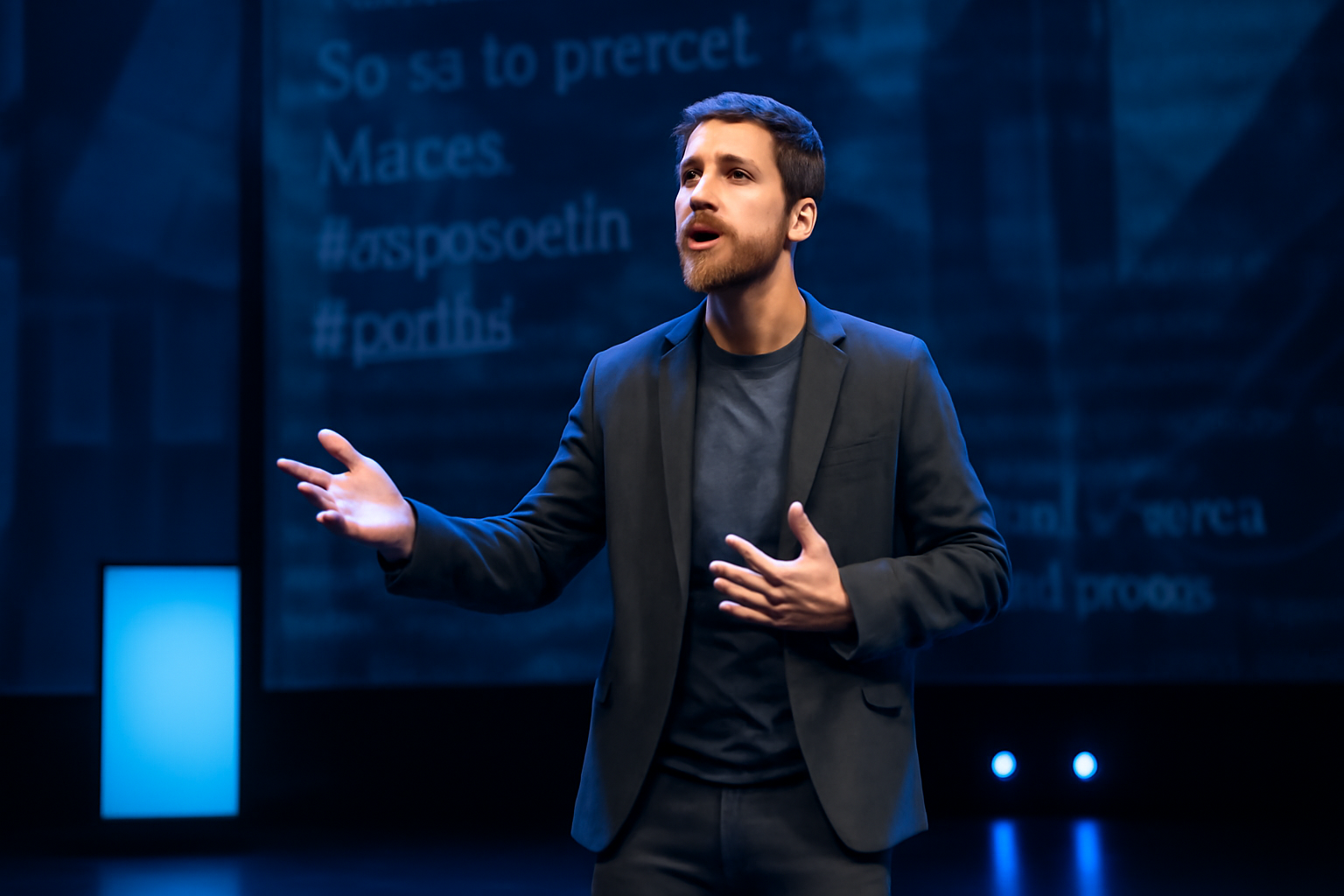Studying Macbeth’s soliloquies allows students to gain a deeper understanding of his psychological state and the play’s major themes, such as ambition, guilt, and power. These soliloquies offer a rich source of analysis, helping scholars interpret the character’s motivations and the tragic nature of his journey.

The Use of Soliloquies in Shakespeare’s Historical Plays: Unveiling Character Depth and Dramatic Tension
The use of soliloquies in Shakespeare’s historical plays has fascinated audiences for centuries. Ever wondered how Shakespeare’s characters seem so alive, despite being from another time? 🤔 It’s all in their soliloquies. These powerful, introspective speeches give us a peek into the minds of iconic figures like Richard III, Henry V, and Julius Caesar. But what makes them so crucial? How do they add depth and tension to the story? In this article, we’ll explore how Shakespeare masterfully uses soliloquies to reveal character complexity and build suspense, offering valuable insights for both beginners and seasoned Shakespeare fans. Let’s dive in! 📜🎭
Table of Contents
Toggle1. What is a Soliloquy?

A soliloquy is a speech given by a character who is alone on stage, revealing their innermost thoughts, feelings, and intentions. Unlike dialogue, where characters converse with others, a soliloquy provides a unique window into a character’s mind, offering deep insights into their motivations. 🧠
In Shakespeare’s plays, soliloquies allow characters to speak directly to the audience, often sharing secrets, doubts, and personal struggles. These moments create a powerful connection, helping us understand their internal conflict or plans. Think of them as a character’s “thinking out loud” – an opportunity to hear their true feelings, unfiltered by social expectations. 🎭
For example, Richard III’s famous opening soliloquy, “Now is the winter of our discontent,” sets the tone for his manipulative and ambitious nature. It’s not just a speech – it’s an invitation for the audience to understand his darker side. 😈
In short, soliloquies are essential tools for character development and audience engagement, giving us a deeper understanding of the complexities of Shakespeare’s historical figures.
2. The Role of Soliloquies in Shakespeare’s Historical Plays

In Shakespeare’s historical plays, soliloquies play a crucial role in unraveling the complexity of the characters and providing essential context. These speeches go beyond mere monologues – they’re windows into the characters’ souls, revealing their deepest fears, ambitions, and motivations. 🌟
- Revealing Hidden Emotions
Historical figures like Richard III or Henry V aren’t just presented as kings or soldiers; soliloquies allow Shakespeare to show us their internal struggles. For example, Henry V’s soliloquy before the Battle of Agincourt reveals his anxiety and sense of responsibility, humanizing him beyond the role of a warrior king. ⚔️ - Providing Critical Backstory
Soliloquies also fill in gaps about a character’s past or plans that the audience might not otherwise know. In Julius Caesar, Caesar’s soliloquy helps explain his views on destiny and power, providing important context for his eventual downfall. 🏛️ - Engaging the Audience
One of the most powerful aspects of a soliloquy is its ability to engage the audience. When a character speaks directly to the audience, it creates a sense of intimacy, making us feel like confidants. This direct connection heightens our emotional investment in the story, as we’re privy to secrets and thoughts others on stage aren’t aware of. 💬
In short, soliloquies in Shakespeare’s historical plays do much more than advance the plot—they deepen our understanding of the characters, enrich the narrative, and maintain the dramatic tension throughout.
3. How Soliloquies Unveil Character Depth

Soliloquies are more than just a tool for advancing the plot in Shakespeare’s historical plays – they’re the key to understanding the true complexity of his characters. Through these monologues, Shakespeare gives us direct access to the inner workings of his characters’ minds, revealing their deepest emotions and motivations. 🤔
- Exposing Internal Conflict
A soliloquy allows characters to express their inner turmoil and doubts without external influence. Take Richard III, for example. In his opening soliloquy, Richard’s words expose his bitterness and desire for power, giving us insight into his manipulative nature. 🌑 - Revealing Human Vulnerability
Even the most powerful figures, like Henry IV, are shown to struggle with vulnerability. Henry’s soliloquy before the Battle of Agincourt is filled with self-doubt, showing that despite his royal status, he’s weighed down by the burden of leadership. This vulnerability makes his character more relatable and human. 💭 - Showing Complex Motivations
Soliloquies also provide a clear look at the motivations behind a character’s actions. In Julius Caesar, Caesar’s soliloquy shows his firm belief in destiny and the idea that he’s invincible. This gives context to his eventual downfall, showing that his arrogance and sense of power are at the core of his decisions. 👑
In essence, soliloquies give us more than just a peek into a character’s thoughts – they lay bare the emotional and psychological layers that define them. This deeper understanding allows us to appreciate Shakespeare’s historical figures not just as iconic personalities, but as fully realized, multidimensional characters.
4. Building Dramatic Tension Through Soliloquies

One of the most powerful ways Shakespeare uses soliloquies is to build dramatic tension. These moments allow the audience to see inside a character’s mind, creating suspense and anticipation for what will happen next. 🎭
- Creating Suspense Through Revealed Secrets
When characters speak their thoughts aloud in soliloquies, they often reveal secrets or plans that other characters don’t know about. This dramatic irony adds tension, as the audience is aware of something the other characters are not. For example, in Macbeth, Macbeth’s soliloquy about murdering King Duncan builds suspense. The audience knows his intentions, but the other characters are in the dark. ⏳ - Heightening Emotional Stakes
Soliloquies let characters voice their internal struggles, increasing the emotional stakes of the story. In Richard III, Richard’s soliloquies not only lay bare his ruthless ambition but also make the audience aware of his manipulative plans. As we hear him wrestle with his conscience, we become more invested in his inevitable downfall. 😈 - Playing with Time and Tension
Many soliloquies occur at pivotal moments, right before a major event. This creates a sense of “counting down” to the climax. For instance, in Julius Caesar, Caesar’s soliloquy about fate and destiny happens just before his assassination, intensifying the sense of imminent danger. ⏰
Through soliloquies, Shakespeare doesn’t just reveal inner conflict – he builds an emotional connection with the audience. As we become aware of a character’s plans, doubts, or fears, the anticipation of the next move creates dramatic tension that keeps us on the edge of our seats. 🎬
5. Famous Soliloquies in Shakespeare’s Historical Plays
Shakespeare’s historical plays are filled with powerful soliloquies that reveal key moments of character insight, motivation, and tension. These iconic speeches not only deepen our understanding of the characters but also keep us hooked to the story. Let’s explore a few of the most famous soliloquies from his historical plays. 🎭
- Richard III – “Now is the winter of our discontent”
In this iconic opening soliloquy, Richard III lays bare his ambition, bitterness, and desire for power. His words set the tone for his Machiavellian actions throughout the play. This soliloquy is a perfect example of how Shakespeare uses soliloquies to expose a character’s ruthless nature. ❄️ - Henry IV – “I know you all”
Before heading into battle, Henry IV delivers a soliloquy that reveals his anxiety and inner conflict. He doubts his ability to lead and feels the weight of his responsibility as a king. This soliloquy humanizes him, showing that despite his royal status, he is still plagued by doubts. 👑 - Julius Caesar – “Cowards die many times before their deaths”
In this soliloquy, Caesar reflects on the concept of fate and immortality. He believes himself invincible, revealing his arrogance and disregard for the threats around him. His soliloquy highlights his sense of destiny, which plays a key role in his tragic downfall. ⚔️ - Macbeth – “If it were done when ’tis done”
Macbeth’s soliloquy just before he murders King Duncan shows his internal struggle. He’s torn between his ambition and his moral hesitation, building tension for what is to come. The soliloquy exposes Macbeth’s vulnerability and the weight of his decision, making his character more relatable. 🗡️
Each of these soliloquies serves a unique purpose in Shakespeare’s historical plays. They reveal the true nature of the characters, provide critical backstory, and, most importantly, add layers of depth that make the plays timeless. 🌟
6. The Impact of Soliloquies on Modern Adaptations
Shakespeare’s soliloquies have transcended the stage, impacting countless modern adaptations in both film and theatre. These timeless speeches still resonate today, helping new audiences connect with the complexity of his historical characters. 🌍
- Soliloquies in Film Adaptations
Many film versions of Shakespeare’s historical plays retain his famous soliloquies to capture the essence of the characters. For instance, in Henry V (1989), Kenneth Branagh’s performance of Henry’s soliloquy before the Battle of Agincourt brings new emotional depth to the speech. The film’s visuals amplify the tension and internal conflict that Shakespeare captured with words. 🎬 - Soliloquies in Contemporary Theatre
In modern theatre, directors often use soliloquies as powerful tools to engage audiences. They can be reinterpreted with contemporary language or even modern settings, making them more relatable to today’s viewers. For example, a Richard III production might use Richard’s soliloquy while integrating modern technology, such as projections or multimedia, to enhance the emotional impact. 🎭 - Keeping the Core Message Intact
While modern adaptations might play with the form and presentation, the core purpose of the soliloquy remains the same – to reveal a character’s deepest thoughts and to advance the narrative. For instance, in Julius Caesar (2002), the soliloquy about fate is still used to highlight Caesar’s arrogance, reminding viewers of the tragic downfall that’s about to unfold. 🧠
Soliloquies continue to play a key role in adaptations, ensuring that Shakespeare’s rich characters and dramatic tension resonate with audiences around the world. Whether in a modern movie, a contemporary theatre setting, or even a digital production, these speeches remain a vital part of bringing the historical figures to life. 🌟
Soliloquies in Shakespeare’s historical plays are much more than just dramatic speeches; they are the window into the minds of his complex characters. Through these powerful moments, Shakespeare reveals the internal struggles, hidden desires, and emotional conflicts that drive the actions of figures like Richard III, Henry V, and Julius Caesar. 🎭
By examining these soliloquies, we gain deeper insights into the psychological depth of historical characters and better understand the dramatic tension that propels the narrative. Whether you’re studying Shakespeare for the first time or revisiting his works, the soliloquies offer a valuable tool for connecting with the plays on a deeper level. 📚
In essence, soliloquies don’t just enrich the characters—they elevate the entire play, making it an unforgettable experience for the audience. So, the next time you read or watch a Shakespearean historical play, pay close attention to the soliloquies. They are the key to unlocking the true power and drama behind the story. 🌟
Frequently Asked Questions (FAQs)
1. Why are soliloquies important in Macbeth?
Soliloquies in Macbeth are vital because they offer a deep insight into the characters’ inner thoughts and motivations. They help reveal Macbeth’s internal conflict, ambition, and guilt, allowing the audience to better understand his tragic journey and the play’s central themes of power and fate. 🎭
2. How does Macbeth’s soliloquy in Act 1, Scene 7 reveal his character?
In this soliloquy, Macbeth reflects on his moral dilemma about murdering King Duncan. It shows his awareness of the consequences of his actions, his ambition, and his growing conflict between his desire for power and his lingering conscience. This speech marks a turning point in his character development. ⚔️
3. What does Lady Macbeth’s soliloquy in Act 1, Scene 5 reveal about her character?
Lady Macbeth’s soliloquy, where she calls on spirits to “unsex” her, reveals her ruthless ambition and desire for power. It shows her willingness to shed any semblance of femininity or morality to achieve her goals, highlighting her manipulative nature and the lengths she will go to for her husband’s success. 🌑
4. How do Macbeth’s soliloquies help build suspense in the play?
Macbeth’s soliloquies create dramatic irony, as the audience is often aware of his thoughts and plans before other characters. For example, when Macbeth contemplates murdering King Duncan, his soliloquy builds tension because the audience knows he is about to commit an irreversible act, increasing the suspense. ⏳
5. How does the "Tomorrow, and tomorrow, and tomorrow" soliloquy reflect Macbeth’s character?
This soliloquy reflects Macbeth’s growing despair and disillusionment. It shows his recognition that life is futile, full of “sound and fury,” and ultimately meaningless. This moment captures his existential crisis, symbolizing his complete emotional and psychological breakdown. 💔
6. What role does guilt play in Macbeth’s soliloquies?
Guilt is a recurring theme in Macbeth’s soliloquies. After committing murder, Macbeth’s soliloquies show his struggle with the overwhelming sense of guilt and remorse. This inner turmoil drives his paranoia and descent into madness, which ultimately leads to his downfall. 🧠
7. How do Macbeth’s soliloquies reflect the theme of fate versus free will?
Macbeth frequently grapples with the idea of fate and free will, especially in his soliloquies. He wonders if he is being driven by destiny, as foretold by the witches, or if his actions are driven by his own choices and ambition. This tension is central to the play’s exploration of human agency. 🔮
